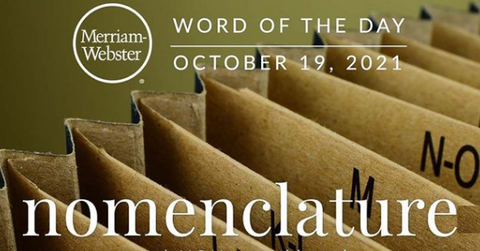Merriam-Webster Just Added 455 New Words to the Dictionary in October 2021
Published Oct. 29 2021, 1:28 p.m. ET

If you ever want to see a bunch of old-timey curmudgeons get up in arms about pretty much nothing, use a new slang term around them. Personally speaking, I'm 35 years old and just can't wrap my head around the word "cap," mainly because it has the same number of syllables as the word "lie" and the song it was inspired by didn't even use the word "cap" as a replacement for "lie."
But language is always evolving, which is something that Merriam-Webster understands very well, since they're constantly adding new words to the dictionary.
What new words did Merriam-Webster add to its dictionary?
The Merriam-Webster Collegiate Dictionary is generally considered the ultimate database of American English words. And while one would think that an entity dedicated to defining and preserving American English vernacular would be extremely stodgy, stuck-up, and set in its ways, that's not quite the case with Merriam-Webster.
In fact, the Merriam-Webster dictionary's social media accounts feature tons of hilarious posts and cheeky comments schooling folks on the proper and improper usages of specific terms.
Now, Merriam-Webster is in the headlines for adding 455 new words to its dictionary. They broke the news on their website in Oct. 2021, highlighting a bunch of phrases we're more than likely already familiar with, but which have now entered the canon of our language.
The company separated the origins of these words and broke them up by communication context as well. It's actually a fascinating read because it showcases just how much shifts in industries and social interactions really shape the nature of our spoken and written words.
For example, a lot of the new Merriam-Webster dictionary words were influenced by "online culture and communication."
Some of the new words that have been officially added are acronyms and online slang, which apparently still need defining:
- TBH
- Because (additional context)
- Amirite
- FTW
- Deplatform
- Digital nomad
And you just knew that there were going to be some news words created by the COVID-19 pandemic, which completely reshaped the world:
- Breakthrough
- Super-spreader
- Long COVID
- Vaccine passport
Here are a bunch of other words that you've probably seen on message boards, comments sections, and tweets, but would never expect to read in a book:
- Bit rot
- Zero-day
- Copypasta
- Teraflop
- Oobleck
- Whataboutism
- Vote-a-rama
- Astroturf (political application)
And for food:
- Fluffernutter (how did it take this long?!)
- Horchata
- Chicharron
- Goetta
- Air fryer
- Ghost kitchen
And then there are these gems:
- Otaku
- Faux-hawk
- Dad bod
- Blank check company
- Doorbell camera
- Small ball
Are there any terms on here that you think aren't worthy of a spot within the vaulted halls of Merriam-Webster's dictionary? Not that it matters, because they're in there now.